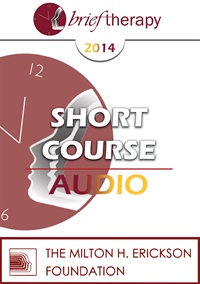
- Average Rating:
- Not yet rated
- Topic Areas:
- Anxiety | Depression | Trauma | Short Courses | Rational Emotive Behavior Therapy (REBT) | Pain and Healing | Brief Therapy
- Categories:
- Brief Therapy Conference | Brief Therapy Conference 2014
- Faculty:
- Debbie Joffe Ellis
- Duration:
- 1:31:16
- Format:
- Audio Only
- Original Program Date:
- Dec 11, 2014
- Short Description:
- Rational Emotive Behavior Therapy (REBT), the holistic approach considered to be the grandparent of cognitive approaches, created by the renowned and brilliant pioneer Albert Ellis PhD, is most effective as a brief therapy for lessening, transforming, healing and preventing emotional disturbances. This Short Course includes a live clinical demonstration, and present the main aspects, methods and techniques of this vigorous, bold and compassionate approach, and is presented by Debbie Joffe Ellis, wife of Albert Ellis.
- Price:
- $15.00 - Base Price
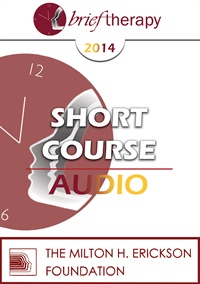
- Average Rating:
- Not yet rated
- Topic Areas:
- Trauma | Short Courses | Experiential Therapy | Brief Therapy | Gestalt | Empty Chair
- Categories:
- Brief Therapy Conference | Brief Therapy Conference 2014
- Faculty:
- Linda Duncan, EdD
- Duration:
- 1:20:41
- Format:
- Audio Only
- Original Program Date:
- Dec 11, 2014
- Short Description:
- This presentation teaches an adaptation of the “empty-chair” that targets trauma. Clients enact a dialogue between the “experiencing” and “self-stifling” parts of the self to discover the true impacts of trauma. Through a structured, step-wise process, clients move from less threatening to more threatening material, eliciting emotions, needs, and desires that have been submerged due to trauma. Supportive neuroscience research explains. Includes demonstration.
- Price:
- $15.00 - Base Price
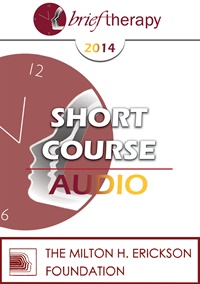
- Average Rating:
- Not yet rated
- Topic Areas:
- Anxiety | Depression | Trauma | Short Courses | Brief Therapy
- Categories:
- Brief Therapy Conference | Brief Therapy Conference 2014
- Faculty:
- Teresa Robles, MA, PhD
- Duration:
- 1:30:29
- Format:
- Audio Only
- Original Program Date:
- Dec 11, 2014
- Short Description:
- After a presentation of original, new conceptualizations on Anxiety, Depression, Trauma and Universal Wisdom, presenter will do an exercise to participants for contacting their Universal Wisdom and to learn how to utilize It. She will demonstrate and participants will practice and discuss exercises and how to teach them to clients.
- Price:
- $15.00 - Base Price
Tags: Anxiety Brief Therapy Depression Trauma
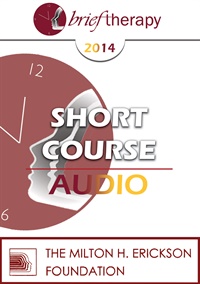
- Average Rating:
- Not yet rated
- Topic Areas:
- Short Courses | Brief Therapy | Hypnosis | Language of Hypnosis | Trauma
- Categories:
- Brief Therapy Conference | Brief Therapy Conference 2014
- Faculty:
- Norma Barretta, PhD | Phillip Barretta, MA, MFT
- Duration:
- 1:12:29
- Format:
- Audio Only
- Original Program Date:
- Dec 11, 2014
- Short Description:
- BT14 Short Course 14 - Tapping into Reserves You Never Knew You Had Using Your Personal Power - Norma Barretta, PhD and Philip Barretta, MA, MFT In the brief treatment of trauma, using hypnosis, not only amplifies the benefits, it also shortens the treatment time. Creating just the right metaphor, choosing the best language patterns, and using the patient’s ( as well as the therapist's) own resources can intensify and direct the deep desire for healing far more quickly than traditional therapy ever could. Tapping into their mutual personal power, enables the intervention. A demonstration of anchoring resources will be part of this short course.
- Price:
- $15.00 - Base Price
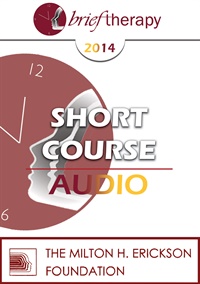
- Average Rating:
- Not yet rated
- Topic Areas:
- Trauma | Short Courses | Memory | Ericksonian Hypnosis and Therapy Techniques | Psychology
- Categories:
- Brief Therapy Conference | Brief Therapy Conference 2014
- Faculty:
- Dan Short, PhD
- Duration:
- 1:32:01
- Format:
- Audio Only
- Original Program Date:
- Dec 11, 2014
- Short Description:
- Ericksonian trauma work utilizes the experience of the present to redefine the past, while remaining future oriented. Memory reconsolidation occurs as memories are physically altered and re-encoded with new emotional elements. More than symptom relief, the intentional use of imagination and creative problem solving ensures greater resiliency for future challenges.
- Price:
- $15.00 - Base Price
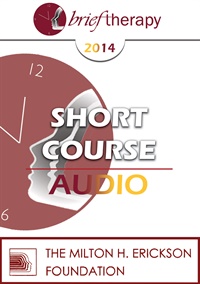
- Average Rating:
- Not yet rated
- Topic Areas:
- Anxiety | Depression | Trauma | Short Courses | Milton Erickson | Brief Therapy
- Categories:
- Brief Therapy Conference | Brief Therapy Conference 2014
- Faculty:
- Dale Bertram, PhD | Mike Rankin, MA
- Duration:
- 1:33:32
- Format:
- Audio Only
- Original Program Date:
- Dec 11, 2014
- Short Description:
- This workshop focuses on the nuts and bolts of providing online Ericksonian Clinical Supervision. It will address how to select an online platform, the major legal and ethical issues in providing online supervision, and a focused discussion on how to utilize the online environment to provide quality supervision. Participants will leave this workshop with a good overview about how to conduct digital (online) supervision in ethical and useful ways.
- Price:
- $15.00 - Base Price
Tags: Anxiety Depression Trauma Brief Therapy
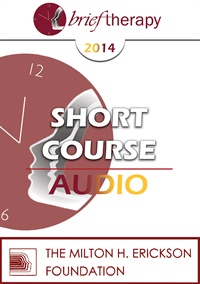
- Average Rating:
- Not yet rated
- Topic Areas:
- Anxiety | Depression | Trauma | Short Courses | Brief Therapy | Ericksonian Hypnosis and Therapy Techniques | Consciousness
- Categories:
- Brief Therapy Conference | Brief Therapy Conference 2014
- Faculty:
- Joseph Dowling, MS, LPC
- Duration:
- 1:27:36
- Format:
- Audio Only
- Original Program Date:
- Dec 11, 2014
- Short Description:
- Milton H. Erickson, M.D. understood that the conscious (thinking) mind is where symptoms are frequently created and cultivated while the subconscious mind is a limitless storehouse of healing energies, potentials, and solutions. This short course will describe a deceptively simple, Ericksonian approach to becoming powerfully calm. Live demonstrations, experiential zone exercises, and case studies will be facilitated to teach how solution-focused questions, strategic interventions, and formal/conversational hypnotherapy effectively treat anxiety, depression, and trauma.
- Price:
- $15.00 - Base Price
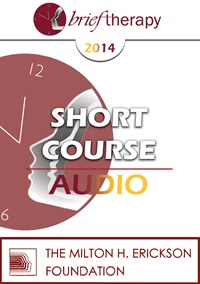
- Average Rating:
- Not yet rated
- Topic Areas:
- Trauma | Short Courses | Brief Therapy | Binds
- Categories:
- Brief Therapy Conference | Brief Therapy Conference 2014
- Faculty:
- John Lentz, D. Min.
- Duration:
- 1:23:01
- Format:
- Audio Only
- Original Program Date:
- Dec 11, 2014
- Short Description:
- This new advanced brief therapy approach uses positive double binds to do intentionally what happens naturally when everything seems to go right. It transforms trauma’s rigid thinking and can greatly assist your clients to heal, make better decisions and believe more positively in themselves and their future.
- Price:
- $15.00 - Base Price
Tags: Trauma Binds Brief Therapy
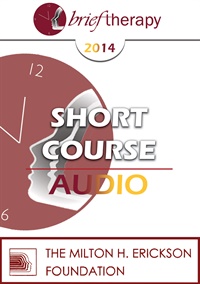
- Average Rating:
- Not yet rated
- Topic Areas:
- Anxiety | Depression | Trauma | Short Courses | Ericksonian Hypnosis and Therapy Techniques | Reality Therapy | Brief Therapy
- Categories:
- Brief Therapy Conference | Brief Therapy Conference 2014
- Faculty:
- Robert Wubbolding, EdD
- Duration:
- 1:29:28
- Format:
- Audio Only
- Original Program Date:
- Dec 11, 2014
- Short Description:
- A demonstration and a 12-minute DVD illustrate how to assist clients to make effective choices satisfying their needs, especially power or inner control. Merging reality therapy with Ericksonian principles helps clients discover and choose alternatives to the manifestations of past trauma, the pain of powerlessness due to anxiety and depression.
- Price:
- $15.00 - Base Price
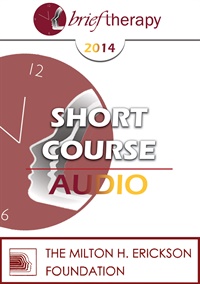
- Average Rating:
- Not yet rated
- Topic Areas:
- Anxiety | Depression | Trauma | Short Courses | Brief Therapy
- Categories:
- Brief Therapy Conference | Brief Therapy Conference 2014
- Faculty:
- Virgil Hayes, DO
- Duration:
- 1:33:07
- Format:
- Audio Only
- Original Program Date:
- Dec 11, 2014
- Short Description:
- There are multiple explanations and theories to explain the creation of anxiety, depression and trauma creation. Many emphasize pathology, permanence of conditions and use multi-syllable words and encourage medical interventions to treat symptoms. This paradigm is often not effective for improving the lives of individuals treated. This course looks at non-medical underpinnings to conceptualize the creation of anxiety, depression and trauma.
- Price:
- $15.00 - Base Price
Tags: Anxiety Depression Trauma Brief Therapy
Please wait ...

